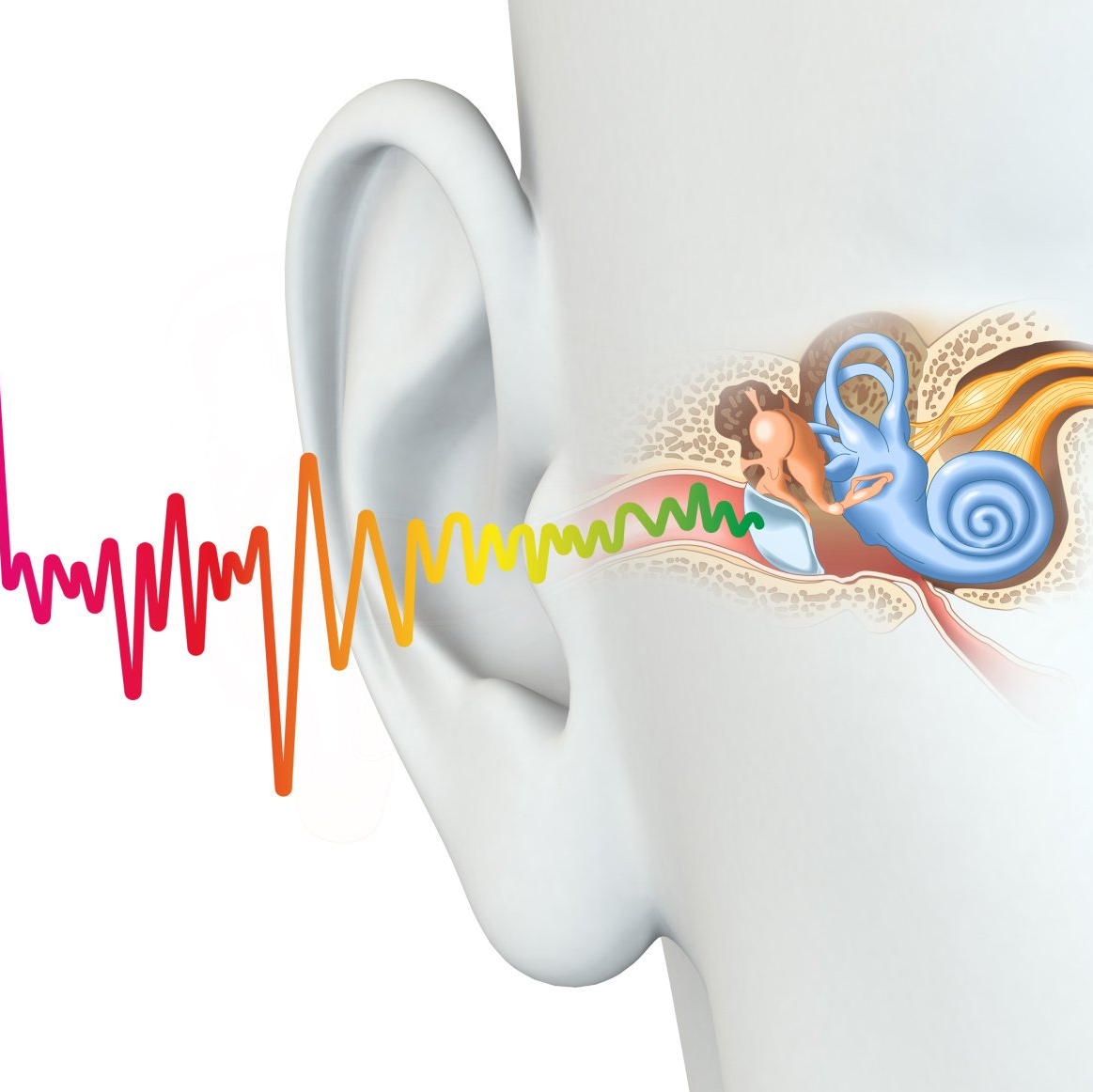Tinnitus Management
What is Tinnitus
Tinnitus is commonly described as a ringing in the ears, but it also can sound like roaring, clicking, hissing, or buzzing. It may be soft or loud, high pitched or low pitched. You might hear it in either one or both ears. In the past year, experts estimate that 22.7 million adult Americans experienced tinnitus for more than three months, which is roughly 10 percent of the adult population of the United States.
Tinnitus (pronounced tin-NY-tus or TIN-utus) is not a disease. It is a symptom that something is wrong in either the ear, the auditory nerve that connects the inner ear to the brain, and/or the parts of the brain that process sound. Something as simple as a piece of earwax blocking the ear canal can cause tinnitus. It can also be the result of a number of health conditions, such as: noise-induced hearing loss, ear and sinus infections, diseases of the heart or blood vessels, Meniere’s disease, brain tumors, hormonal changes in women, or thyroid abnormalities.
Scientists still haven’t agreed upon what happens in the brain to create the illusion of sound when there is none. Some think that tinnitus is similar to chronic pain syndrome, in which the pain persists even after a wound or broken bone has healed. Tinnitus could be the result of the brain’s neural circuits trying to adapt to the loss of sensory hair cells by turning up the sensitivity to sound. This would explain why some people with tinnitus are overly sensitive to loud noise.
Improve your hearing with expert care
If you have tinnitus you should always tell your doctor. The doctor can check to make sure earwax isn’t blocking your ear canal and you will be asked about your current health, medical conditions, and medications to find out if an underlying condition is causing your tinnitus. If your doctor cannot find any medical condition responsible for your tinnitus, you may be referred to an otolaryngologist (commonly called an ear, nose, and throat doctor, or an ENT). The ENT will physically examine your head, neck, and ears. Then you will be referred to an AUDIOLOGIST who can test your hearing and evaluate your tinnitus and devise a treatment plan.
Tinnitus does not have a cure yet, but treatments that help many people cope better with the condition are available. A combination of the treatments below may be recommended depending on the severity of your tinnitus and how your life is affected by it.
Treatments
- Hearing aids often are helpful for people who have hearing loss along with tinnitus. They allow the person to focus on hearing other sounds rather than their tinnitus.
- Counseling helps you learn how to live with your tinnitus by providing you with tools and education.
- Wearable sound generators/maskers are small electronic devices that look like hearing aids that present pleasant sounds to the patient. Tabletop sound generators are used as an aid for relaxation or sleep. They can play sounds that are relaxing to you such as waves, or rain, or white noise.
- Acoustic neural stimulation is a relatively new technique for people whose tinnitus is very annoying. It uses a palm-sized device and headphones to deliver a signal embedded in music. The treatment helps stimulate changes in the neural circuits in the brain, which eventually desensitize you to the tinnitus sounds.
- Antidepressants and anti-anxiety drugs might be prescribed by your doctor to improve your mood and help you sleep. Other medications may be available at drugstores and on the internet as an alternative remedy for tinnitus, but nothing has been proven effective in clinical trials.
To start on the path to your unique tinnitus treatment plan, contact us today.

